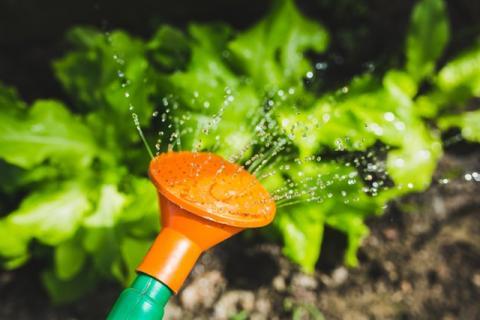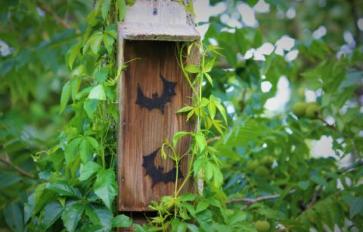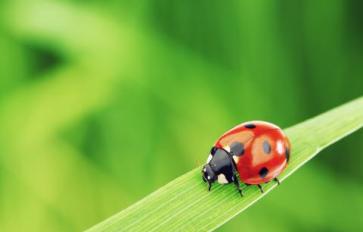
Mentally, turning gardens into horticultural war zones for battling insects and plant diseases as enemies can lessen the joyfulness of gardening.
Cultivating a harmonious attitude towards nature is the most skillful way of gardening. Avoid using unnecessary chemicals and poisons. This doesn’t mean allowing creepy crawlers to devour all your vegetables and flowers.
I’d like to share a few concepts and tricks that I’ve learned from organic gardening workshops that have rooted deeply in me, which makes gardening more joyful—even when something goes wrong.
Observe what’s happening in your garden and intervene only when absolutely necessary. Most insects found in gardens are beneficial or relatively harmless in small numbers. An invasion of destructive insects or rampant plant disease is nature’s way of saying something is out of balance.
If the plants thrive and grow faster than the bugs can eat them up and plant disease problems are minimal or non-existent the garden ecology is probably well balanced, with good soil conditions and the right amount of watering, not too much or too little.
As it happens, problems do arise periodically. There are ways to protect your garden without resorting to poisons or other unskillful means. One solution is to remove infested plants before the problem spreads.
Consider aphids and white flies, two very common garden pests. The easiest solution is the most difficult for many gardeners: The first thing to do is absolutely nothing! I hardly believed “experts” who advised it’s best to wait and see if beneficial predator insects soon follow and resolve the problem naturally.
Nature has its own checks and balances, which means it’s okay for insects to attack and maybe lose a few plants now and then. Even safer botanical insecticides (made from plants) can have the unintended consequence of killing off beneficial insects, prolonging imbalances in the garden that led to problems in the first place.
Doing nothing doesn’t always work. If a problem persists the next best natural solution for tiny insects is to drown them with a strong steady stream of water, taking care to also douse the underside of leaves where they like to hide. Larger insects, such as the various pests that like tomatoes can simply be picked off by hand and disposed of. Snail populations can be kept under control this way too.
More severe bug problems can be dealt with by spraying plants with soapy water to suffocate pests -- but not when the sun is strong and be sure to rise off the soap to avoid damaging leaves. There are other similar methods using horticultural oils and natural insecticides such as neem.
Another more proactive solution is to include plants in gardens like chrysanthemums, garlic, lavender and marigolds, which contain compounds that kill or repel many pests. Rotate plant crops and avoid planting monocultures. Remove and dispose of diseased leaves and clear away the fallen ones.
Sticky tape traps can be purchased and other homemade remedies can be useful. Bury small cans level with the ground and fill with beer to attract snails that fall in and drown. There are infinite more ways to protect gardens—without going ballistic.








